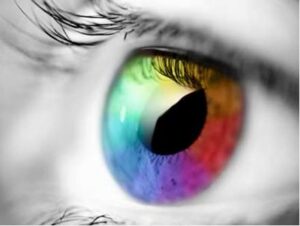 For years, I’ve promised to buy myself the T-shirt that says, “Where are we going, and why am I in this handbasket?”
For years, I’ve promised to buy myself the T-shirt that says, “Where are we going, and why am I in this handbasket?”
Blame It on Your Brain
Baby boomers are no different than traditionalists (and prior age groups). Each was sure that the next generation entering the workforce—in this case, millennials—don’t have as good a work ethic or communication skills as they do.
I believe this is part of the human condition. When we don’t understand something, our brains rush to fill in the gaps. And because our brains are risk averse (that’s one of the reasons we’re still around), we tend to lean toward the negative.
It’s true: millennials grew up with technology. Those born between 1981-1996 spend an average of 8.5 hours a day consuming content on their digital devices (5.2 of these on smartphones). And 54% of them are looking at more than one screen at a time. This is affecting how their brains: and how they think and behave. Here’s what the research shows.
Using Our Heads
Our brains develop based on how we use them. Surfing the web and texting draw upon different parts of the brain than speaking and reading do.
According to Kirk Erickson, principal investigator of the Brain Aging & Cognition Health Lab at the University of Pittsburgh, spending too much time with tech can atrophy the frontal lobe. This is responsible for personality, higher thinking powers and social behavior. Losing this also weakens ties between different parts of the brain, making it harder to connect disparate ideas.
In addition, excessive technology use shrinks the outer portion part of the brain, so it’s harder to process information. Erickson believes that can affect how millennials regulate their emotions, their ability to remember some events, and their capability to pay attention to different things.
Focusing on phones, texts and emails may also mean millennials aren’t seeing and learning traditional person-to-person communication skills. After all, there’s not as much filtering of social cues and topics on a device.
Better Employees?
At the same time, millennials are developing skills traditionally linked to success at work.
They like to share information and be part of a group. When they post on social media, their temporoparietal junction lights up. That simulates the “feel good hormone” in their brains (oxytocin) as well as dopamine, which is associated with being rewarded. This preference for sharing and collaboration can make them good team members.
They crave multisensory experiences. Younger brains are stimulated by what older brains find distracting: rich media, lighting and rotations. These experiences cut through their attention barriers. The result is that millennials are more engaged and better remember the information. This sends them looking for more, which is great when you need someone to do in-depth research.
They do well with complex messages and volumes of data. Brain research shows that millennials are better able (than their elders) to quickly process, integrate and act on data, while ignoring distractions.
They can “multitask.” Baby boomer brains, in general, are more engaged by focusing their attention on a limited number of sources, and one at a time. While they can toggle back and forth between these (which passes for multitasking), some time and attention are lost.
Most millennials can’t concentrate for long periods. Instead, their brains are more comfortable with viewing multiple sources at once. They prefer to pay attention to lots of places in intermittent bursts.
Peaceful and Productive Coexistence
As of 2016, millennials became the largest group in the workforce. I’ve heard my fair share of “you don’t get a trophy for participation in business” and “they don’t have the work ethic that we do” comments from boomers and traditionalists.
Here’s the truth. millennials have different brains and beliefs than prior generations. Many want to work with organizations whose values align with theirs. Plenty want the flexibility to work offsite and during different hours if they get the job done. Some think it’s fine to bring a phone to a meeting and do something else when they perceive the topic of discussion doesn’t apply to them.
Good leaders have always recognized the gifts their employees have. Then they put these people in the places to make the greatest contribution. It’s still our calling to find a way to engage and inspire people. That doesn’t change with the age of the employee.
Interested in inspiring more of your people to follow your lead? Let’s talk.
